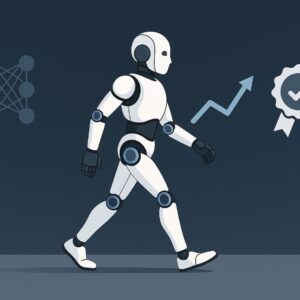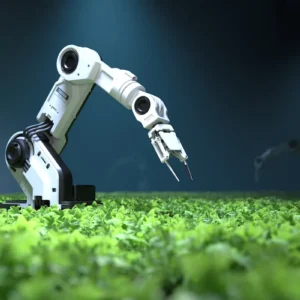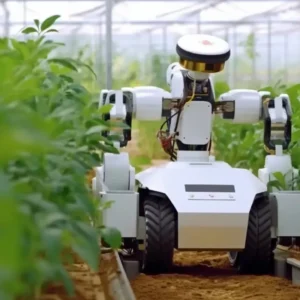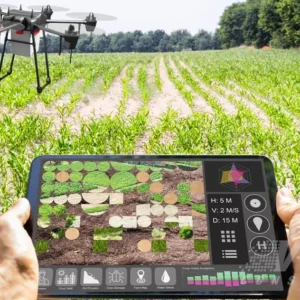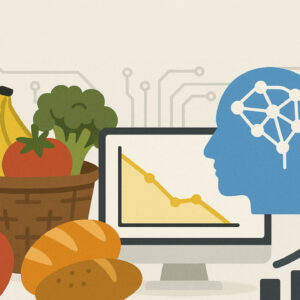In the quest for enhanced food safety, artificial intelligence has emerged as a game-changer. AI technologies offer a smarter, more efficient approach to allergen detection, ensuring every meal is safer and more transparent. By employing advanced algorithms, AI systems can swiftly identify allergens, surpassing the capabilities of conventional methods.
The need for innovation in allergen detection arises from the increasing risks associated with hidden ingredients. With the complexity of modern food production and the potential for cross-contamination, the traditional methods of allergen testing are no longer sufficient. Food Allergen Detection with AI offers a robust solution, providing an extra layer of protection for consumers and an invaluable tool for the food industry.
Unveiling the Power of AI: Revolutionizing Food Allergen Detection
In the intricate world of food production, allergens present a complex challenge. These invisible culprits, often lurking in the most unexpected places, can trigger severe reactions in susceptible individuals. With the power of artificial intelligence (AI), we are now equipped with an innovative tool to detect and mitigate these hidden dangers. AI technology offers an efficient and precise method for identifying allergens, ensuring a safer culinary experience for all.
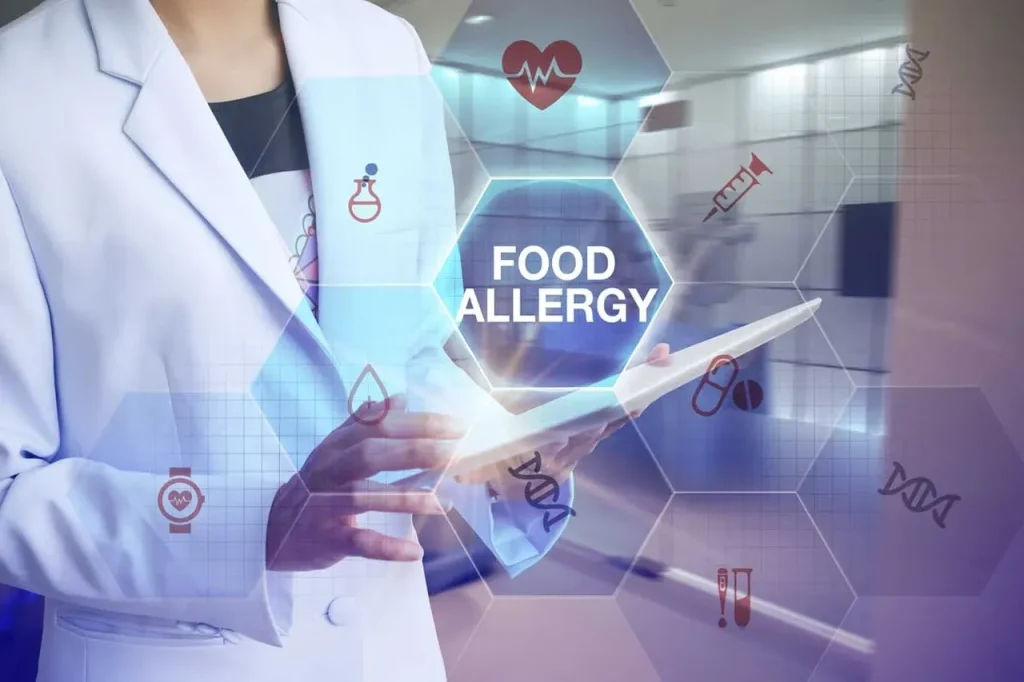
Food allergens, such as nuts, shellfish, or gluten, can have devastating consequences, even in minuscule quantities. The global impact of these allergens is profound, affecting millions of people worldwide. By harnessing the capabilities of AI, we can revolutionize food safety, offering peace of mind to those with allergies and ensuring a transparent, trustworthy food industry.
Revolutionizing Food Safety: AI’s Role in Allergen Detection
The traditional methods of allergen testing, including lab-based and manual processes, have long faced challenges and delays. While accurate, these techniques often fall short due to their time-consuming nature, leaving gaps in food safety measures. ELISA and PCR, for instance, provide precise results but demand significant time investments, hindering swift action. Furthermore, human error, cross-contamination risks, and mislabeling incidents pose additional threats to food safety. To overcome these limitations, innovative solutions are needed to enhance the efficiency and reliability of allergen detection.
Food Allergen Detection with AI offers a promising alternative, revolutionizing the industry with its accuracy and speed.
How AI Is Revolutionizing Allergen Detection
AI technology is transforming the way we detect allergens, making the process more efficient and accurate. With its advanced capabilities, AI enhances allergen testing, allowing for increased scalability and sensitivity. By utilizing data-driven models, AI can identify and analyze ingredient risks, ensuring a safer food production process. The integration of AI-powered sensors and spectroscopy tools brings real-time allergen detection directly to the production line, revolutionizing the industry. Food Allergen Detection with AI offers a groundbreaking solution, empowering manufacturers to ensure the well-being of consumers. This innovative approach marks a significant advancement in food safety, providing a comprehensive and reliable system for allergen management.
Computer Vision for Visual Allergen Clues
The application of Computer Vision and AI technologies has revolutionized the detection of food allergens. With advanced algorithms, we can now identify potential contamination risks in food preparation areas. By analyzing visual clues and patterns, AI systems can pinpoint cross-contamination from equipment or tools, ensuring a safer culinary experience.
In shared facilities, real-time monitoring with AI offers an efficient solution. This innovative approach not only enhances food safety but also provides a peace of mind for both consumers and businesses alike. By leveraging AI’s capabilities, we can take proactive measures to prevent allergic reactions and promote a healthier dining environment.
Revolutionizing Food Safety: AI’s Role in Allergen Detection
Artificial intelligence is revolutionizing the way we ensure food safety, particularly when it comes to allergen labeling. With its advanced capabilities, AI assists in interpreting and rectifying allergen information, ensuring accurate and consistent labeling across various supply chains and packaging. By employing natural language processing, AI can identify missing or misleading data from global sources, flagging inconsistencies in multiple languages. This innovative technology streamlines the process, enhancing food safety measures and protecting consumers from potential allergen risks. Food Allergen Detection with AI offers a robust solution, ensuring transparency and accuracy in allergen labeling.
Enhanced Traceability Systems with AI
In the realm of food safety, AI has emerged as a powerful tool, revolutionizing ingredient traceability systems. With its advanced monitoring capabilities, AI can meticulously track allergens throughout the entire supply chain, ensuring transparency and accountability. By combining blockchain technology with AI, the origins of ingredients become traceable, offering a clear and secure path from source to consumer. This innovative approach not only enhances food allergen detection but also empowers businesses and consumers alike with valuable insights into supplier risk profiles, enabling early warning systems and proactive measures. AI’s role in ingredient traceability is a game-changer, fostering trust and confidence in our food systems.
AI Offers Real-time Detection Of Allergens
In the realm of food safety, innovative technologies are stepping up to protect allergy-sensitive consumers. With the rise of wearable and mobile AI devices, individuals can now take control of their dietary choices with precision and confidence. These cutting-edge tools, such as AI-powered scanners and portable spectrometers, offer real-time detection of allergens, ensuring peace of mind for those with food sensitivities. Imagine a world where a simple scan of a meal or a glance at a menu can reveal potential hazards, empowering consumers to make informed decisions. Food Allergen Detection with AI is revolutionizing the dining experience, making it safer and more accessible for all.
Training AI Models with Allergen Data
The development of AI systems to identify allergen risks is a meticulous process undertaken by food scientists and engineers. These experts meticulously curate datasets, incorporating information on allergen presence, outcomes, and ingredient lists. By utilizing supervised learning techniques, they train the AI models to accurately classify risks, ensuring a robust and reliable system. This innovative approach revolutionizes food safety, offering an advanced tool to protect consumers from potential allergen hazards. Food Allergen Detection with AI is a game-changer, empowering the industry with a precise and efficient solution.
Use Cases: Where AI-Based Allergen Detection Is Already Saving Lives
In the food industry, the implementation of AI-based allergen detection systems has emerged as a game-changer, offering an innovative approach to safeguarding consumers. These advanced technologies are transforming the way businesses identify and manage allergens, ultimately protecting the well-being of their customers. By leveraging artificial intelligence, companies like Nestlé and IBM have developed cutting-edge tools for ingredient screening, ensuring that their products are safe for those with allergies. Furthermore, startups such as SNIFF, Nima, and Tellspec have pioneered portable allergen detection devices, empowering individuals to make informed choices about their food.

This revolution in food safety is not only saving lives but also enhancing trust and transparency in the food industry. As AI-driven allergen detection continues to evolve, it is paving the way for smarter supply chain management and real-time contamination monitoring. The integration of AI into allergen detection processes showcases a remarkable fusion of technology and healthcare, providing an invaluable service to the community.
Unlocking Personalized Nutrition: AI’s Role in Allergen-Free Dining
Imagine a culinary realm where artificial intelligence (AI) revolutionizes the way we eat, ensuring a safe and tailored dining experience. AI-powered systems can create hyper-customized meal plans, considering individual dietary preferences and allergen sensitivities. With advanced predictive modeling, these systems can generate unique, allergen-free recipes, catering to diverse tastes and health needs. Food Allergen Detection with AI is an innovative approach that ensures a new level of safety and satisfaction for diners, offering a truly personalized culinary journey. This technology promises a future where dining is not just a necessity but a delightful and worry-free adventure.
Moreover by leveraging machine learning algorithms, AI can continuously learn from user feedback, refining its recommendations to better align with evolving tastes and nutritional requirements. This dynamic adaptability not only enhances personalization but also empowers individuals to explore new flavors and ingredients with confidence, transforming every meal into a safe, enjoyable, and deeply customized experience.
Challenges in AI-Based Allergen Detection
The implementation of AI-based allergen detection systems presents a promising future for the food industry and public health. However, it is not without its challenges. One of the key concerns is the occurrence of false positives, which can lead to unnecessary product recalls and consumer confusion. Additionally, the issue of overfitting in AI models may result in inaccurate predictions, especially when dealing with complex and diverse allergen data.
Another challenge lies in the absence of global standards for AI safety and testing accuracy. The lack of uniform guidelines makes it difficult to ensure consistent performance and reliability across different systems. Moreover, ethical considerations come into play, particularly regarding data privacy and consent, as these systems often require access to sensitive consumer information. Despite these obstacles, the potential benefits of AI-powered allergen detection are undeniable, offering a more efficient and precise way to identify allergens and enhance food safety for consumers.



